
PREV ARTICLE
NEXT ARTICLE
FULL ISSUE
PREV FULL ISSUE
DAVISSON'S E-AUCTION 35 SELECTIONSIn a May 22, 2020 email, Lief Davisson highlights selected lots in the Davisson's upcoming E-Auction 35. -Editor To our readers in the U.S., Happy Memorial Day Weekend! This traditional start of summer seems to have come out of nowhere, particularly for those of us who have been staying home and social distancing for the last few months. In Minnesota now is the time when many head north for the weekend, visiting family summer cabins for the first time since last year. With non-essential travel discouraged and many businesses still closed, however, the solid lines of traffic heading out of town may be smaller today. Our current E-Auction 35 is moving along well, with mail and online bids starting to arrive. Lots selected for our E-Auctions generally have lower estimates than those in our large auctions, but that does not diminish their interest or quality. A few ancients in particular deserve extra attention. 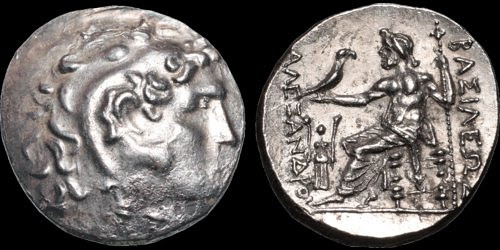 Lot 24. KINGS OF THRACE. Celtic. Kabyle. Kavaros. Circa 230-218 B.C. AR tetradrachm. Extremely Fine. In 279 B.C. the Celtic Gauls swept down into Thrace and Asia Minor, defeating the Greek armies trying to stop them. They occupied Thrace for the next five decades, ruling with a succession of kings. The Gallic chieftain Kavaros was the only Gallic king of Thrace to strike coinage in his own name. He used the types of Alexander the Great tetradrachms. He was the last ruler of the Galatian kingdom of Tylis in eastern Thrace, where he industriously extorted the surrounding Greek cities. He is known for helping negotiate peace in 220 B.C. between Byzantion, Rhodes, and Bithynia. His capital was Kabyle, and all his coins portray Artemis Phosphoros its badge, confirming they were all minted there. The obverse die for this issue was also used for earlier tetradrachms with reverses naming Kavaros in place of Alexander. His rule was ended when he was killed during a Thracian revolt against the Gauls around 218 B.C. 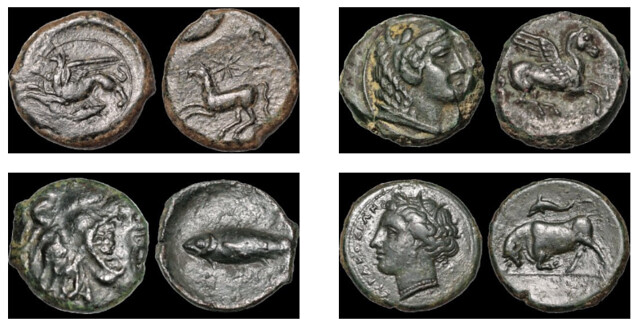 Anyone who has browsed older sale catalogs can tell you that Greek bronzes in particular have benefitted greatly in modern cataloging. Now even modest lots receive photographs and are offered individually, rather than in slightly mysterious large lots. The small group of coins of Sicily in this auction are prime examples of this. With fine style and widely varied designs and denominations, Greek bronzes reflect the artistry of the silver issues but with substantial character all their own. 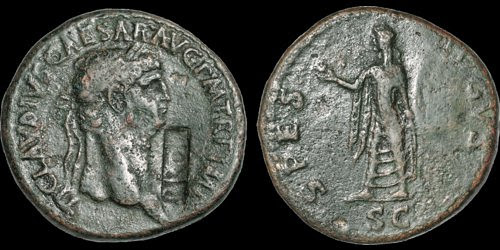 Lot 50. Claudius. A.D. 41-54. Æ sestertius. With probably British countermark. The emperor Claudius in A.D. 43 led the invasion of Britain, beginning the Roman occupation of the island that lasted until the fifth century. R. F. Kenyon, in his article "The Countermark PROB on coins of Claudius I from Britain" printed in The Numismatic Chronicle, Vol. 148 (1988), citing research by D. W. MacDowall and his own extensive study, concludes that most probably sestertii of Claudius such as this example were sent to Britain from the mint of Rome and countermarked PROB at a military center in Britain. The countermarks were always carefully struck, always in the right obverse field and never overlapping the imperial portrait. 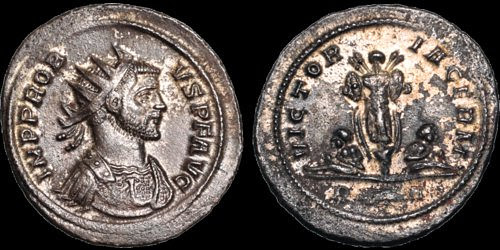 Lot 66. Probus. A.D. 276-282. Billon antoninianus. Superb example. Late Roman coinage receives less attention on average, with the upside that beautiful pieces can be had for very reasonable estimates. Silvered antoninianii of Probus in particular can be found in remarkable condition, but few are quite so nice as this (and the following lot 67). Perfectly centered on a broad flan, with a reverse alluding to Probus's Germanic victories, we had trouble finding any other examples of this issue so nice. For more information, or to bid, see:
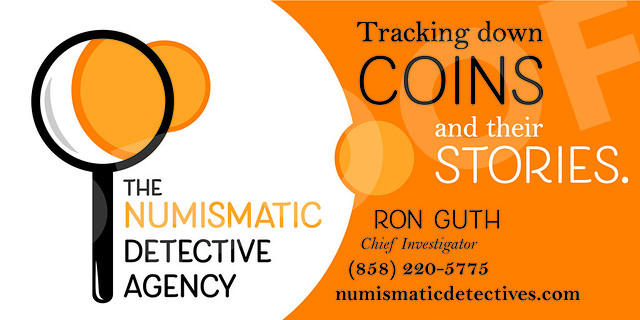 Wayne Homren, Editor The Numismatic Bibliomania Society is a non-profit organization promoting numismatic literature. See our web site at coinbooks.org. To submit items for publication in The E-Sylum, write to the Editor at this address: whomren@gmail.com To subscribe go to: https://my.binhost.com/lists/listinfo/esylum All Rights Reserved. NBS Home Page Contact the NBS webmaster 
|